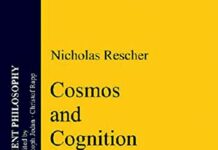
Ebook Info
- Published: 2005
- Number of pages: 152 pages
- Format: PDF
- File Size: 0.89 MB
- Authors: Nicholas Rescher
Description
Epistemic logic is the branch of philosophical thought that seeks to formalize the discourse about knowledge. Its object is to articulate and clarify the general principles of reasoning about claims to and attributions of knowledge. This comprehensive survey of the topic offers the first systematic account of the subject as it has developed in the journal literature over recent decades. Rescher gives an overview of the discipline by setting out the general principles for reasoning about such matters as propositional knowledge and interrogative knowledge. Aimed at graduate students and specialists, Epistemic Logic elucidates both Rescher’s pragmatic view of knowledge and the field in general.
User’s Reviews
Editorial Reviews: Review ”’Epistemic Logic’ is the shining star of Rescher’s provocative trilogy on realism, knowledge, and our cognitive imitations. EL is a unique and crucial addition to the literature in formal epistemology because it locates the debate over the knowability principle within an overall system of the logic of knowledge.” —Mind About the Author Nicholas Rescher is Distinguished University Professor of Philosophy at the University of Pittsburgh and co-chairman of the Center for Philosophy of Science. A member of the American Academy of Arts and Sciences, he has served as president of the Eastern Division of the American Philosophical Association, the Leibniz Society of North America, the Charles S. Peirce Society, the American Catholic Philosophical Association, and the Metaphysical Society of America. Rescher is the author or editor of more than one hundred books, including Ignorance (On the Wider Implications of Deficient Knowledge), Philosophical Inquiries: An Introduction to Problems of Philosophy, and A Journey through Philosophy in 101 Anecdotes.
Reviews from Amazon users which were colected at the time this book was published on the website:
⭐Rescher’s Epistemic Logic is a true gem — a compact and concise survey of epistemic logic. Rescher’s system s is an elegant system of epistemic propositional logic that denotes individual agents and quantifies over both agents and propositions. So system s uniquely combines aspects of both propositional logic and first-order logic. System s also includes notation to express answers to question such that ‘p @ Q’ means ‘p answers the question Q’.Unfortunately Epistemic Logic does not cover the semantics of epistemic logic, which for me is the most exciting and, well, meaningful aspect of logics, especially epistemic logics. And it would be particularly interesting given Rescher’s unique system s as I describe above. Nevertheless Epistemic Logic is recommended reading! It’s main virtue is providing rapid and coherent access to epistemic logic assuming prior familiarity with classical logic.
⭐For me, this book is like a ‘Rosetta stone’ in that the author writes most of his sentences in both English and his preferred logical notation, providing great insight into how mainstream epistemologists think about and express epistemic concepts. This alone makes the book a ‘must have’ for me. The author’s informal axiomatic development of an epistemic logic that (in his opinion) best mirrors reality is of less interest to me, although others may find it fascinating. Happy reading!
⭐
Keywords
Free Download Epistemic Logic: A Survey of the Logic of Knowledge in PDF format
Epistemic Logic: A Survey of the Logic of Knowledge PDF Free Download
Download Epistemic Logic: A Survey of the Logic of Knowledge 2005 PDF Free
Epistemic Logic: A Survey of the Logic of Knowledge 2005 PDF Free Download
Download Epistemic Logic: A Survey of the Logic of Knowledge PDF
Free Download Ebook Epistemic Logic: A Survey of the Logic of Knowledge





